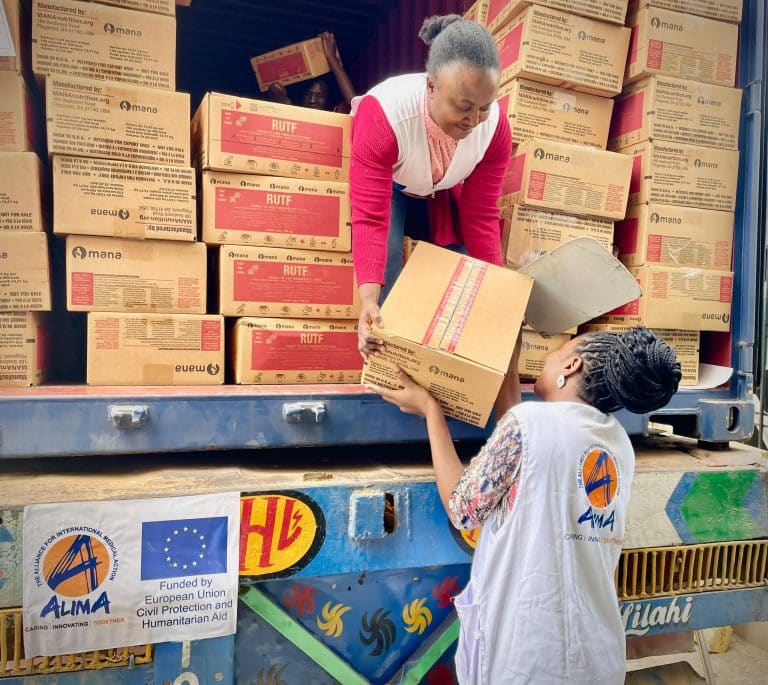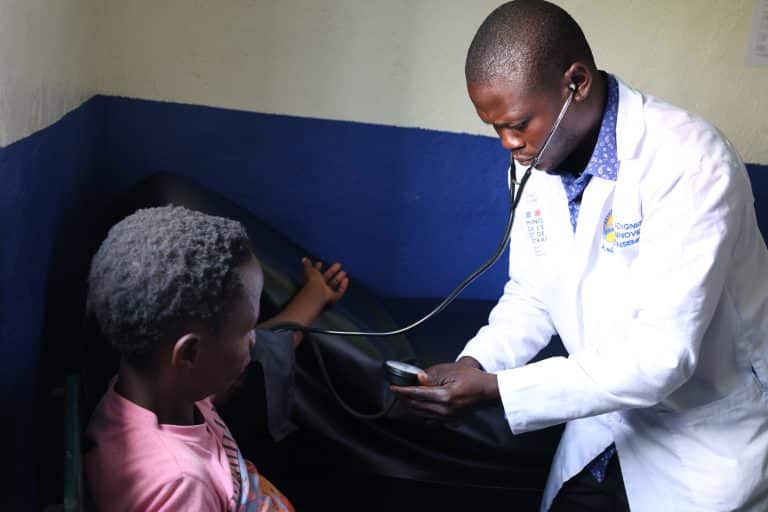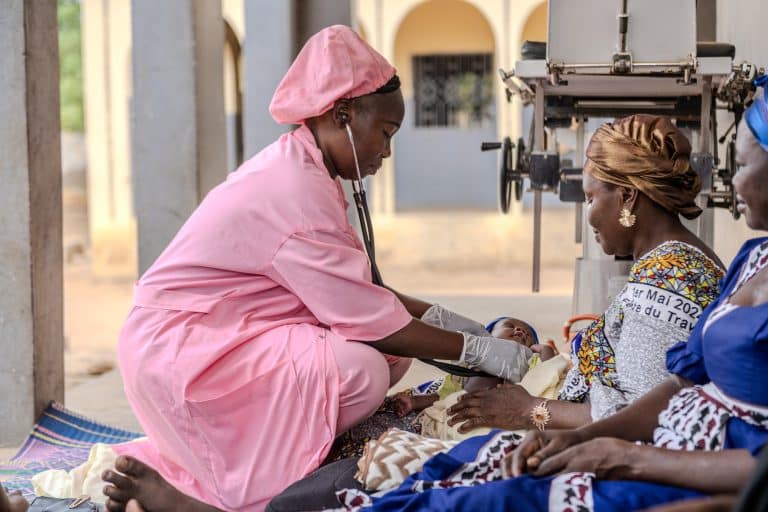In Dogon country
The starting point of my journey? Bandiagara, with its famous cliffs familiar to most Senegalese schoolchildren.Now, it’s an area plagued by violence from armed groups. Violence that goes unrecognized by the media, silent acts of violence that threaten the livelihoods and health of communities. And yet, humanitarian aid continues to reach the area. A colleague told me: “We were there at a time when nobody wanted to be there.”
In Bandiagara, in the heart of Dogon country, I came face to face with malnutrition. In daily deprivation, the displaced, who are already extremely vulnerable, are the first to get trapped in the web of malnutrition. Violence blocks access to fertile land, weakens the local economy, and leaves communities impoverished.
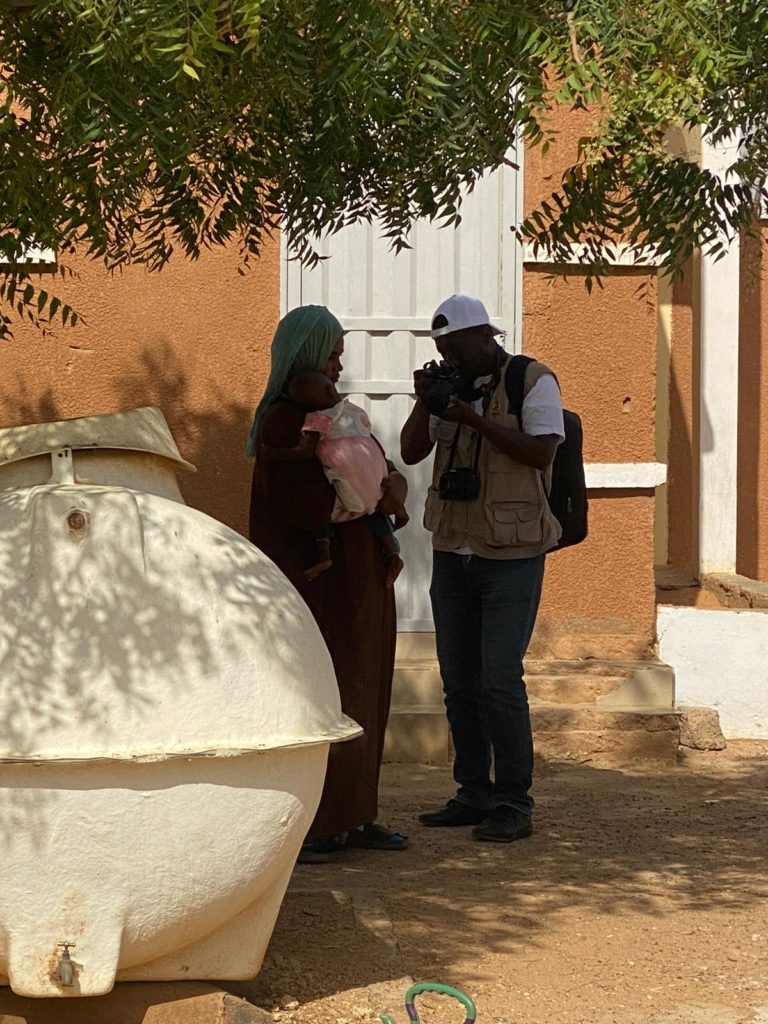
In the country of honest people
My second stop was in the country of honest people: Burkina Faso. In Ouahigouya and Kaya, I met many people: patients who had come to ALIMA health centers for treatment, and colleagues who shared with me a bit of their journey and ambitions. Burkina Faso is not immune to the cycle of violence affecting parts of the Sahel region, which also impacts the delivery of humanitarian aid. The prevailing insecurity means that some health centers have to close early. As one patient put it, health has no fixed hours. The dedication of our colleagues and partners in the field touched me deeply.
Sand for miles in Mauritania
The last leg of my journey took me to Mauritania. We swapped the mild climate of Nouakchott for the notoriously scorching Aleg, about a four-hour drive and many checkpoints from the capital. It was not as hot as the weather forecast said it would be. All along the miles of sandy dunes, bushy groves, and thorny trees, I kept my eyes open for water streams. But I never saw any. Water was a recurring problem. No proper hygiene without clean, drinkable water. A doctor in Boghdida praised ALIMA’s work but regretted that we didn’t supply them with water. In Aleg, I was surprised to talk to a woman named… Alima!
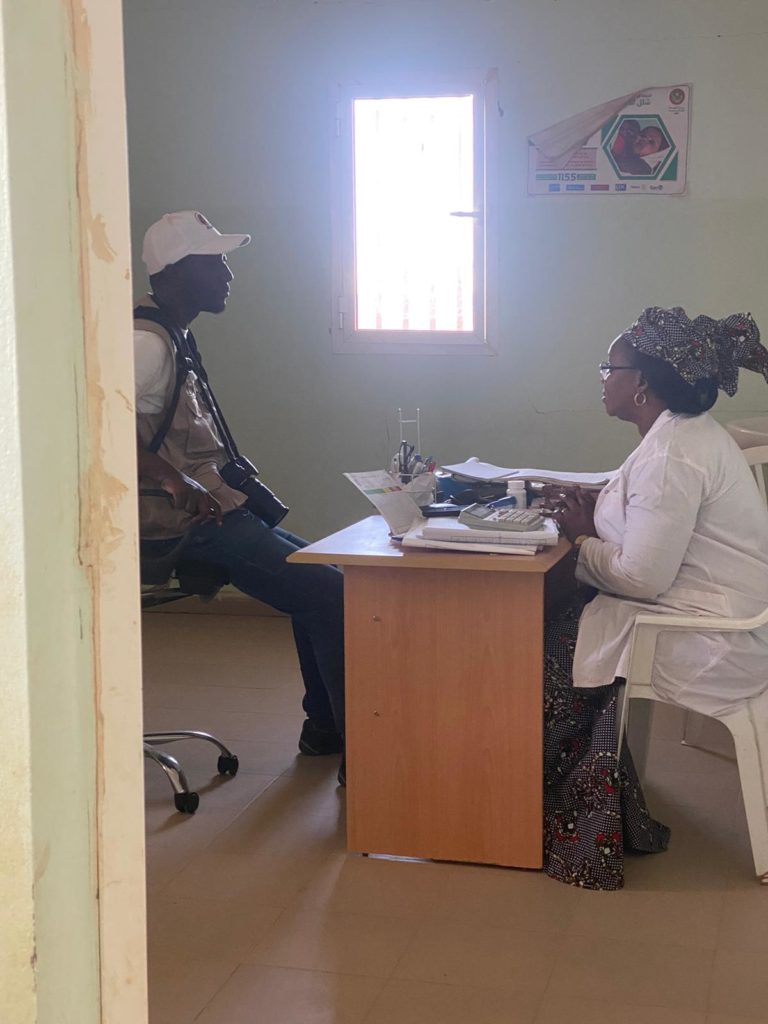
How can you tell a story of suffering?
Telling health stories is not the easiest thing I’ve ever done. I had to navigate between the suffering of the people I was talking to and the need to show the NGO’s tireless support at the bedside of communities, in areas where I did not see other NGOs. I’m not saying they’re not there. That might not be true, and it would also ignore all the work these sentinels do daily to alleviate the suffering of those in need. What do I remember? Snatches of conversation, endless roads, multiple skies, emotions felt, all the little things that don’t fit into photo captions or published accounts. All those treasures we’d like to share and that make us better human beings. It’s a common thread between my passion for telling stories (or listening to them) and their personal narratives. I had to consider when it was necessary to ask questions and when to respect the silence of people who, were it not for the hazards of geography and history, could have been me. Asking the right questions without being too intrusive. Making contact in a matter of minutes. Not to be a story-thief, but a story-receiver. Because every second recorded, every line written later, is a gift.
Lexicon of a humanitarian backpacker
Visiting the field means enriching your vocabulary. I discovered some new words: MUAC, MUAC for Mothers (not in the dictionary, that one), and Shakir tape. It’s also about ranking the best cuisines. Aleg, peaceful Aleg, you win the prize for the best cuisine, ahead of Burkina Faso and its famous ‘bicycle chicken’.
Spare me a few more minutes…
I must mention the frustration I feel each time I go into the field. Some stories are hard to let go of because they come from genuine encounters with people, going into their homes, and sharing their daily reality to show the significance of ALIMA in their lives. A child in good health brings joy to a household; that’s more than aid – it’s life itself.
Cover picture © ALIMA


